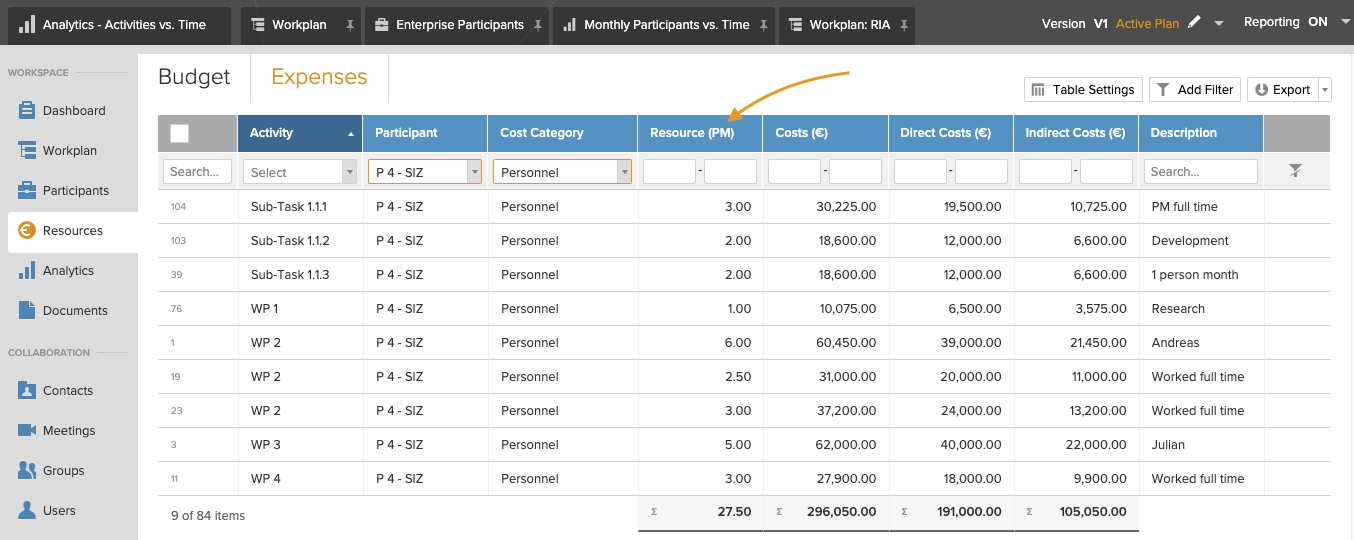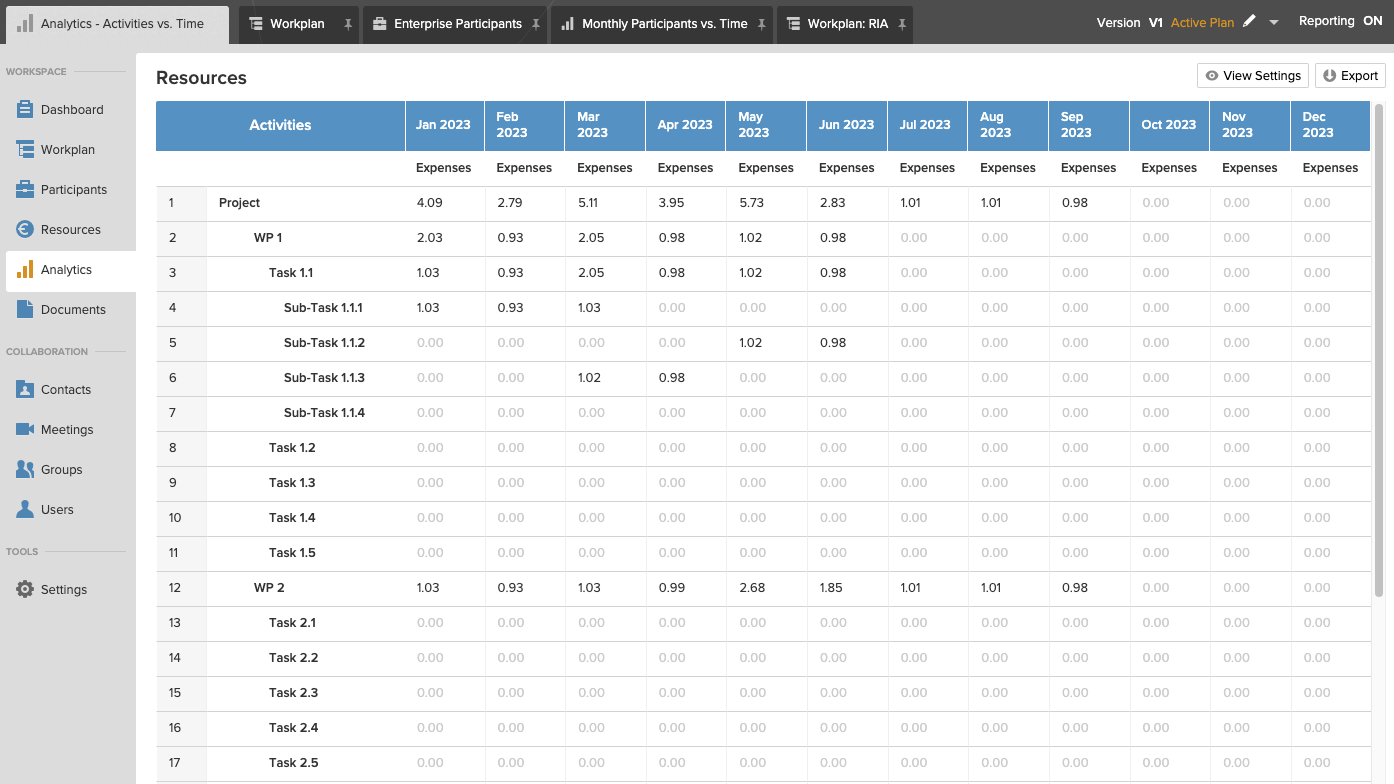Time recording is a crucial aspect of Horizon Europe project tracking. This process is essential for justifying personnel costs and demonstrating that resources have been allocated effectively. Therefore, time tracking in Horizon Europe is a fundamental aspect of project management. It is not just about keeping track of hours spent on a project. It's about accountability, transparency, and ensuring that funds are used efficiently. It serves as a key tool for justifying personnel costs and demonstrating that resources and efforts have been appropriately allocated towards project activities. This evidence typically comes in the form of timesheets or time records.
Time tracking in Horizon Europe: Requirements
According to the Horizon Europe Annotated Model Grant Agreement, only costs for personnel assigned to the action (i.e., working on the project according to internal written instructions, organisation chart, or other documented management decision) can be eligible. The monthly declaration of days worked in the project, signed correctly, or reliable time records will usually be sufficient proof of the assignment to the action.
For personnel costs to be justified, beneficiaries can either use reliable time records (timesheets) or have individuals working on the action sign a monthly declaration on days spent for the action (EC’s timesheet template). The time records should be dated and signed at least monthly by the person working for the action and their supervisor. If the time recording system is computer-based, the signatures may be electronic.
What to include into a timesheet?
Timesheets are documents that record the time an employee has spent on different tasks. They are essential for demonstrating that the efforts and resources of a project have been allocated appropriately.
Horizon Europe timesheets should ideally be filled in daily by the person working on the action and approved by their supervisor.
The timesheets should include the following minimum information:
- The call identifier, acronym, and number of the action, as specified in the Grant Agreement (GA)
- The beneficiary’s full name, as specified in the GA
- The year
- The full name of the person working for the action
- The number of days worked for the action monthly in the year covered by the time record
- The person’s full name and signature/month
- The supervisor’s full name and signature/month
- A reference to the work packages of Annex 1, to which the person has contributed by the reported working days.
If you're using an existing time-recording system where you record your time in hours, you'll need to convert these productive hours into productive days. There are three options available for this conversion, as stated in the Horizon Europe Annotated Model Grant Agreement.
Filling out timesheets can often seem like a daunting task. However, the European Commission has made efforts to simplify this process in Horizon Europe.
Alternative evidence for time spent on a project
In some cases, alternative evidence may be accepted to support the time spent on a project. This could include travel documents proving participation in a project meeting, agenda and minutes of the meeting, attendance lists, working papers, laboratory logbooks, professional/personal diaries, documents related to presentations, scientific publications, correspondence, such as letters, notes, memos, emails, etc.
Matching information with other records
The information included in the timesheets must match records of annual leave, sick leave, other leaves, and work-related travel. In case of an audit, auditors will assess the credibility of alternative evidence based on three criteria: clear identification of the person concerned, clear link to the project under scrutiny, and the possibility to quantify time spent on project-related tasks.
Maintaining records and documentation
It is incumbent upon beneficiaries to retain and manage records and other corroborating documents that validate the correct execution of the action, adhering to the approved standards in the relevant field. These records and documents must be accessible for inspection upon request or during checks, reviews, audits, or investigations.
Should there be ongoing checks, reviews, audits, investigations, legal proceedings, or other claim-related activities under the Agreement (inclusive of the extension of findings), beneficiaries are obligated to preserve these records and other corroborating documents until these procedures are concluded.
Beneficiaries are required to retain the original documents. If authorised by the applicable national law, digital and digitised documents are deemed as original documents. The granting authority may consider non-original documents as acceptable if they provide a similar level of assurance.
Leveraging EMDESK for time tracking in Horizon Europe
EMDESK, a project & financial management software designed specifically for Horizon Europe projects, can be a game-changer when it comes to time tracking. With its intuitive interface and robust features, EMDESK simplifies the process of recording and managing time spent on various project tasks.
One of the key advantages of using EMDESK for time tracking is its ability to streamline and automate the process. Instead of manually filling out timesheets, employees can easily log their hours spent on different tasks within the software. This not only saves time but also reduces the likelihood of errors that can occur with manual data entry.
Furthermore, EMDESK allows for real-time tracking and updating of time records. This means that project managers can have an up-to-date overview of how much time is being spent on different tasks, enabling more effective resource allocation and project management. For example, this view shows how many months participant 4 spent on each task:

Another significant benefit of EMDESK is its ability to generate comprehensive reports based on the recorded time data. These reports can be invaluable when it comes to justifying personnel costs to the European Commission, as they provide a clear and detailed breakdown of how time has been allocated across the project.
The "Analytics" section of EMDESK offers the "Activities / Time" report, an ideal tool for generating a comprehensive timesheet. This report enables the tracking of efforts, project-specific tasks, and workspaces attributed to a participant or employee within a specified period. For example, this report shows a timesheet for participant 4 for 2023:

In conclusion, using EMDESK for time tracking in Horizon Europe projects can significantly simplify the process, increase accuracy, allow accurate response to auditors and provide valuable insights for effective project management. By understanding and implementing the guidelines for time recording in Horizon Europe, beneficiaries can ensure they meet the requirements and successfully manage their projects.
This article is written by Stefan Detschew, Chief Technology Officer at EMDESK.